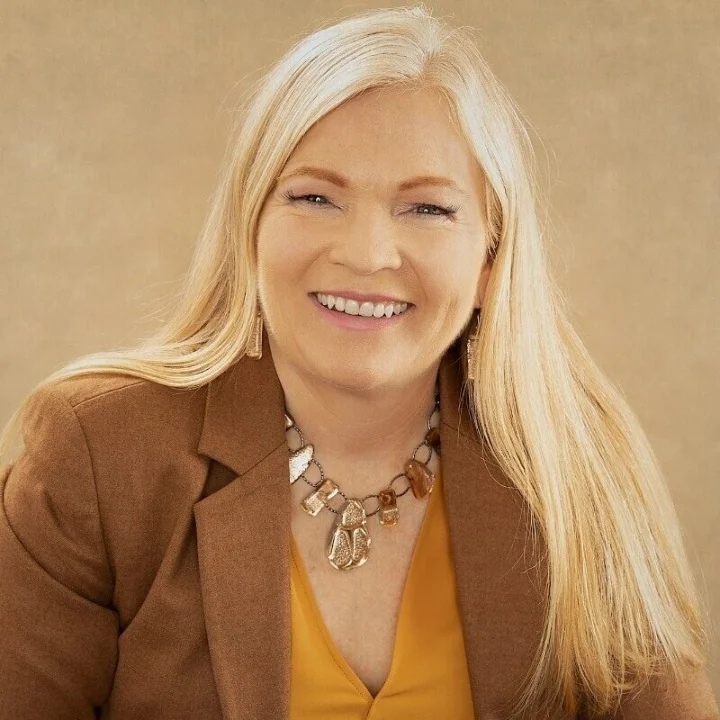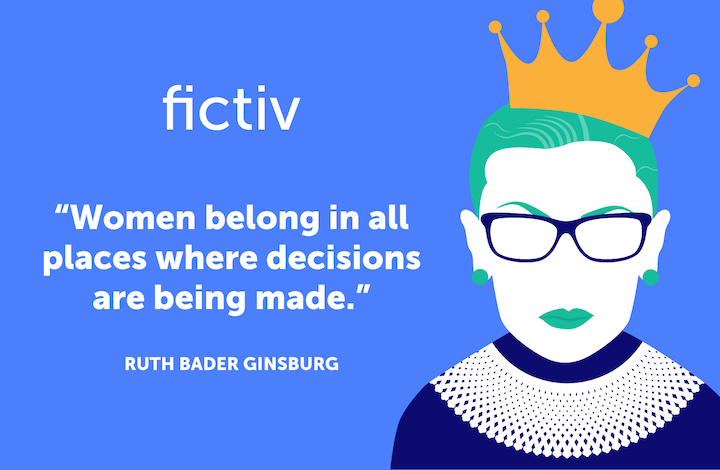Time to read: 6 min
Each startup begins with a dream, an idea. But to discover the courage, strategy, and means to actually move toward realizing that idea is a exceptional task and for most Founders that period of transition is both challenging and transformative.
Clifton Roozeboom is in the midst of such a transition as he moves from completing his PhD in Mechanical Engineering at Stanford University to developing a powerful and accessible wireless sensing product called The PocketLab.
“Right now I’m running 100% on coffee,” Clifton laughs. “Things are ramping up much faster than I expected, but the PhD phase of my career has certainly prepared me for working at this pace. That and my remarkably supportive, loving wife have kept me going.”
To help demystify the transition from prior career to startup CEO, Clifton shares his experience and the most significant insights which have supported him along the way.
Start and Stick with Your Passion
In order for a product idea to have legs, it must be accompanied by a vision, and in order for there to be a vision, there must be passion. “I think about sensors all day, every day,” Clifton says. “When I started my PhD program, I didn’t plan on developing a product. But in conducting extensive research on sensors and wireless sensor nodes and also coaching robotics teams, teaching a graduate mechatronics class at Stanford, and teaching middle schoolers in East Palo Alto as part of the Bay Area Tech Challenge, I realized that access to effective science lab equipment was a problem. So I started to develop The PocketLab.”
For Clifton, the development of The PocketLab aligned naturally with both his expertise and his passion; the study of sensors is the core of his research and working with students is a meaningful part of his life.
Even with some pushback from potential investors, Clifton found it integral to stay true to the original vision for the product and where it could solve the greatest need. “When we began speaking with investors, there was some concern expressed with the focus on education,” Clifton recalls. “Most investors are afraid of investing in education since schools have many different budget constraints, but we wanted to stay true to the original vision for the product since we had found a niche where we believed we could offer great value.”
“Kickstarter is just one tool, one point of validation rather than the pinnacle”
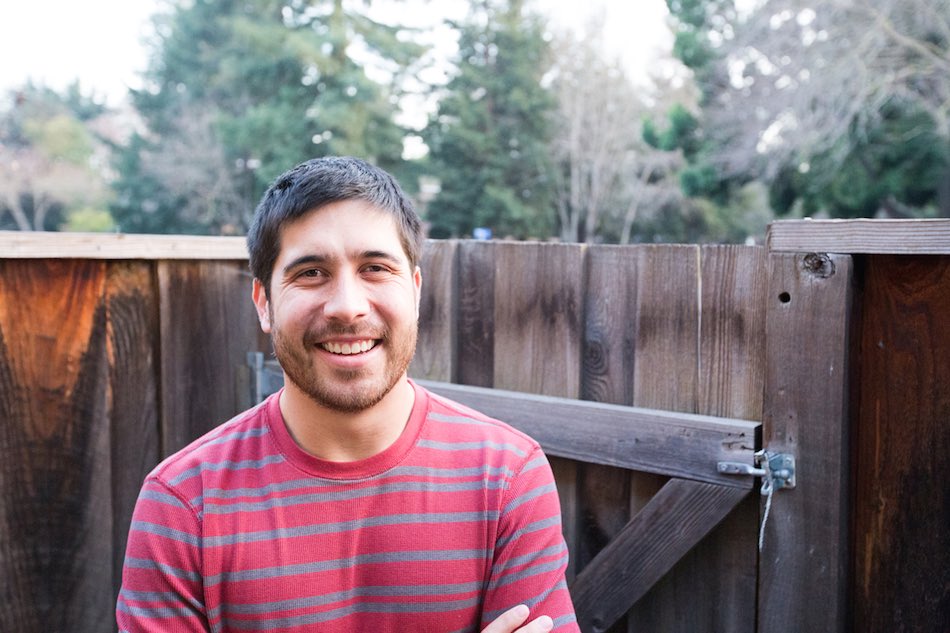
Clifton’s passion for science education is clearly evident in the way he speaks about his work with students. “I love it when students can take something that seems boring to them and apply it in the real world,” he enthuses. “Just yesterday I taught an 8th grade class about angular rotation where we attached The PocketLab to the abdomen and then measured angular rotation and velocity as they spun, did cartwheels, and somersaults.”
This is the only way Clifton gets through grueling hours working on both his PhD dissertation and developing a hardware product at the same time – the work is meaningful and he is incredibly passionate about it.
Validation is Progressive
There are many unknowns which accompany the seedling origins of a hardware startup. When that ‘aha’ moment arrives and you’ve discovered an opportunity, how can you find confirmation for that idea? And even if it is a great idea, will the product have the legs to be sustainably profitable?
“There’s a big difference between people giving you positive feedback or liking your Facebook page and customers placing orders”
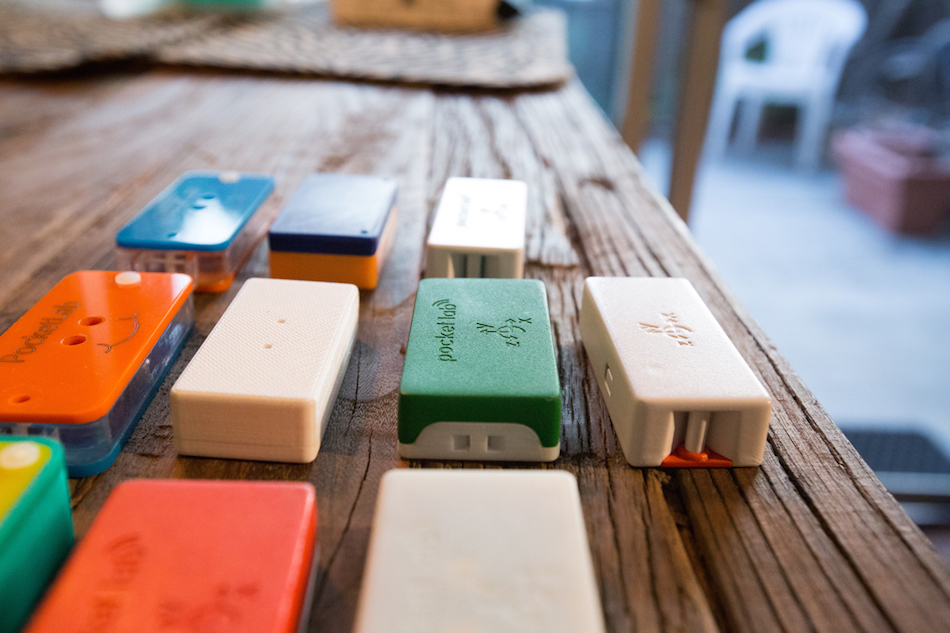
Clifton sees this challenge as one that can’t be answered by a single point of validation. Rather, the answer to product validation is a progressive one, marked by significant milestones that build upon one another.
The first milestone of validation for The PocketLab was found in the exploration of currently available technology. “Once we started searching deeper into the existing technology for educational science equipment, it became clear to me there was a large gap between state of the art technology and what was available and affordable for schools,” Clifton shares. “I saw a clear need in the market that wasn’t being addressed by other companies and this was confirmation of an opportunity.”
The second point of validation was found in two business competitions. The PocketLab placed first in Yale’s Business Education Competition and third in a business competition at Stanford University, which gave Clifton additional confirmation he was on the right track and the means to continue working on his beta prototype.
“I believe in how The PocketLab will impact the community and I’m building my own future. That’s the most meaningful work I can think of”
After this, Clifton moved to beta testing, but cautions against solely relying on user feedback as proof of concept. “There’s a big difference between people giving you positive feedback or liking your Facebook page and customers placing orders,” Clifton advices.
The fourth milestone for The PocketLab is Kickstarter, which launched last week and has already surpassed its goal. But there has been a long and detailed road to get to Kickstarter and many checkpoints along the way to keep the product on track.
“Kickstarter is just one tool, one point of validation rather than the pinnacle,” Clifton remarks. Each of the previous milestones are equally significant and a product vision should be continuously reevaluated in light of recent learnings to arrive at a cohesive picture of the opportunity.
For Timing, Follow the Rule of Pi
In regards to the timing of a transition toward full time work on a product idea, Clifton references the rule of pi. “Everything takes more time than you think it will,” Clifton says knowingly. “In research we call this the Pi Rule, which goes that everything takes 3.14 times longer than you originally intend; you think you can design a circuit board in 1 month and it will most certainly take 3.”
This is the case with any hardware startup; actions don’t waterfall precisely, so to make a design change for a tooling mold, for example, might take 3 days to design, but 6 extra days to account for communication delays, vendor scheduling, or a broken machine.
When you’re working a full time job or preparing your PhD dissertation in addition to developing a product, the demands on your time are even more strenuous, thus delays can be compounded.
“Leveraging the knowledge of others is perhaps the most important thing you can do”
“Working on The PocketLab has extended my PhD longer than I expected,” Clifton reflects. “I started working on this idea a year and a half ago and haven’t had much free time in the last year.” But throughout the process, Clifton was intentional about taking the time required to develop an excellent product rather than trying to cut corners.
“In product development you have a choice to prioritize 2 of 3 goals,” Clifton says. “You can build your product in a low-cost way, you can build your product with quality and you can take less development time. You can only feasibly follow through with 2 of these 3 goals however and if one of them has to slip, it should be the timeline.”
No (Successful) Startup is an Island
When it comes to reaching out for help in launching The PocketLab, Clifton has quickly learned the importance of delegation. “You don’t really learn how to delegate as a PhD student since you’re mainly working alone on your research. There weren’t any management courses that went with my ME program,” Clifton amuses.
So Clifton has proactively relied on an experienced business advisor to help him navigate certain areas of business expertise. “Find someone experienced in the startup world to mentor or partner with you,” Clifton advices. “If someone’s been through the process of building a startup, problems that might take you a day to solve will be immediately apparent to them. Leveraging the knowledge of others is perhaps the most important thing you can do.”
Main takeaway here: even a PhD in Mechanical Engineering needs help with a hardware startup, so that means everyone should value the importance of outsourcing help where needed.
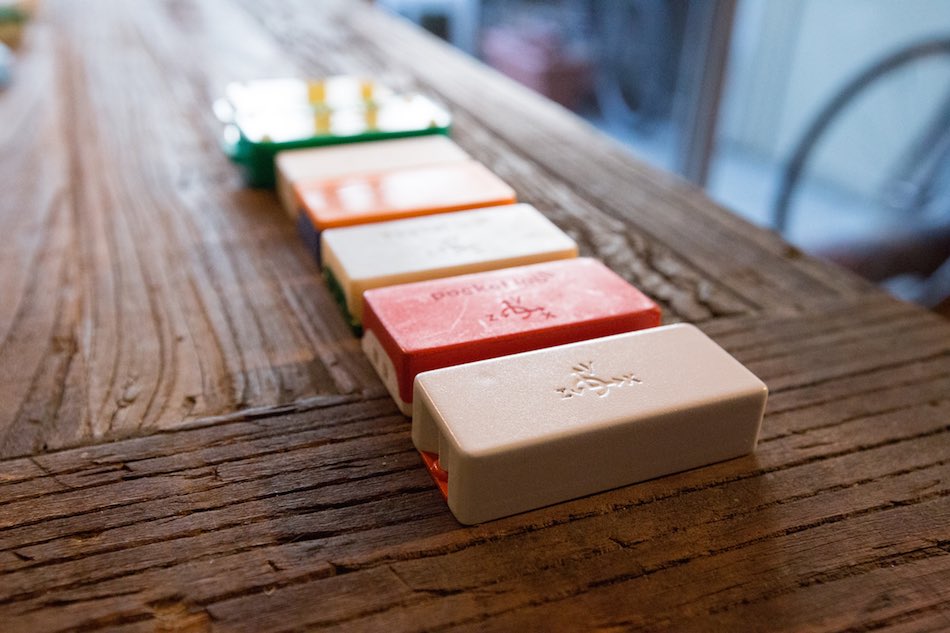
Transitioning toward the full-time pursuit of a passion is challenging. Clifton makes it apparent that the last year and a half has not been easy, but his passion, vision and deep understanding of the work have made manageable the burdens of inevitable stress and strain.
“I wouldn’t be able to work at this pace forever,” Clifton reflects, “but I believe in how The PocketLab will impact the community and I’m building my own future. That’s the most meaningful work I can think of.”
